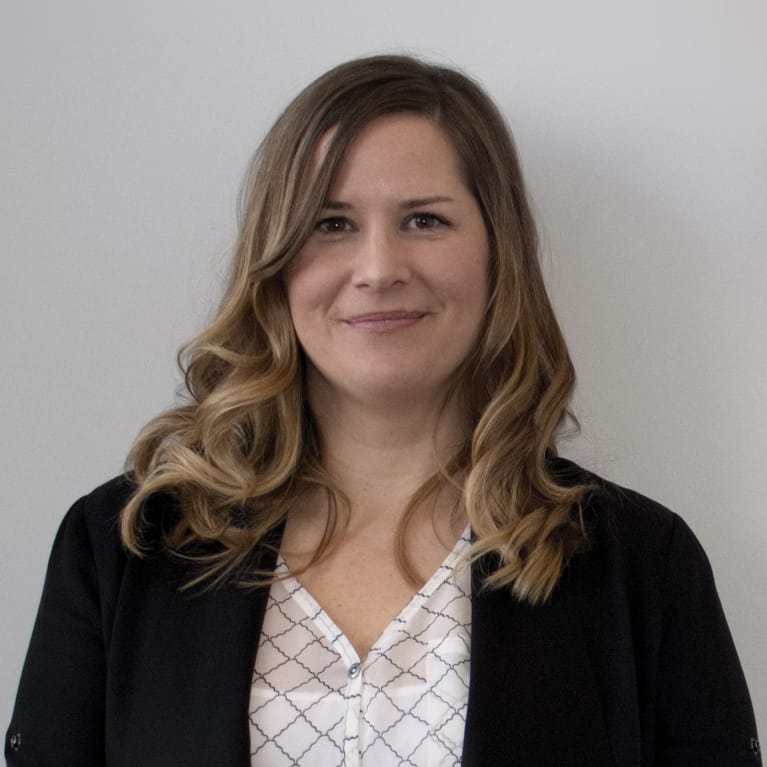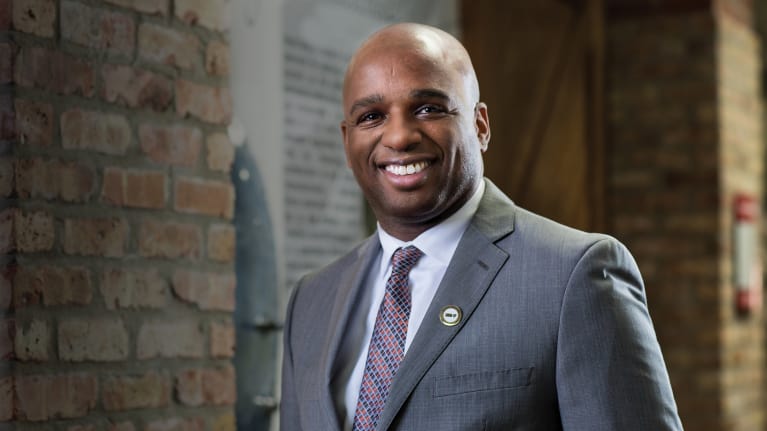Competencies Are Key to HR's Professional Development
Taking a behavioral approach to your own career growth can sharpen your skills and on-the-job effectiveness.
Introduction
Kimberly Hunter had been a stay-at-home mom when she was first exposed to the HR function about 15 years ago. She got the opportunity to help out with payroll and administration for a business in the NASCAR industry while the regular employees were on vacation.
Eventually, she began working full time for the U.S. office of a Formula One car racing series powerhouse. “They wanted someone who understood the operations of racing as well as an office, and they didn’t have anyone in HR,” she recalls.Hunter (pictured above) worked with the company’s payroll vendor, set up its 401(k) plan and other benefits, and learned many aspects of HR on the job, an experience shared by many who find themselves working in HR.
“I convinced my company to pay for me to join a local [Society for Human Resource Management (SHRM)] chapter,” she says. “I learned so much from other professionals and discovered that I knew more about HR than I thought.”
As she prepared for the next steps in her career, she wanted a way to showcase that she had critical HR skills. So she decided to pursue a SHRM certification and successfully sat for the exam during the first testing window in 2015. Within months of receiving her credential in September of that year, she was getting wooed by companies looking to hire a SHRM-certified professional.
Hunter interviewed for the operations director position at Recruiter.com—a leading online careers site and recruiting platform based in Farmington, Conn.—where, she says, her SHRM-SCP certification stood out. “With the certification, there was no question that I could lead a team and handle payroll and other aspects of HR,” she says.
When the folks at Recruiter.com offered her the job, Hunter recalls one of them saying, “You’re SHRM. You’ve got it.”
But what exactly is “it”? Perhaps it’s the understanding that today’s HR practitioners must be adept at many roles in their day-to-day work—business advisor, leader, communicator, recruiter, brand expert and more—and thus need to take a behavioral approach to their own professional growth. Yet until recently, the career development and certification options for those working in HR remained mostly based on knowledge alone. By contrast, the materials in the SHRM Learning System—which Hunter used to prepare for the certification exam—focus on situations that HR professionals tackle every day.
“The questions in the book involved so much more than just memorizing the date an act went into effect and what it covers,” she says. “There were real-life examples, and the correct answers gave me more experience just by reading through them and thinking critically about them.”
Hunter recalls a sample question about what to do during a layoff when some of the workforce is covered by the Age Discrimination in Employment Act. The correct answer explained that there are added protections and notice requirements that apply when workers age 40 or older are laid off. For example, those individuals should be given more time to review a severance agreement that includes a waiver of discrimination claims.
“Now, if my company were to close its doors and we were to provide severance packages, I know how it should play out,” Hunter says.
Maybe that’s why some HR professionals, including Anthony Ray, SHRM-CP, executive director of human resources for Morton College in Cicero, Ill., choose to keep the SHRM Learning System handy as a reference in the office. “It’s great to be able to refer ... to the material when issues come up,” he says. “I can look up the relevant competencies and get answers.”
The SHRM Certified Professional (SHRM-CP) and SHRM Senior Certified Professional (SHRM-SCP) certifications are built on a behavior model known as the SHRM Body of Competency and Knowledge (BoCK). That framework, which is based on extensive global research that gathered information from employers, academics and HR practitioners, identifies what it takes to be a successful HR professional across the performance continuum, around the world, and from early to executive career levels.
The BoCK includes eight behavioral competencies—Business Acumen, Communication, Consultation, Critical Evaluation, Ethical Practice, Global & Cultural Effectiveness, Leadership & Navigation, and Relationship Management—plus one technical competency, HR Expertise.

"When I end up being pulled in multiple directions at once, the faster I can apply my knowledge to make an effective decision and act on it, the better."
The model is designed to help HR professionals identify the information they need for any given situation—quickly. “When I end up being pulled in multiple directions at once, the faster I can apply my knowledge to make an effective decision and act on it, the better,” says Melanie Olsen, SHRM-CP, an HR manager for 3M—a multinational corporation based in St. Paul, Minn.
As the immediate past president of the Twin Cities Human Resource Association, Olsen was an early adopter of the SHRM Competency Model and certification.
Since earning her certification, she has been dedicated to mastering the eight behavioral competencies while also understanding and gaining experience across all of the HR functional areas covered under the HR Expertise competency—from talent acquisition and retention to employee relations and from risk management to business strategy. She says doing so builds her credibility and makes her work more meaningful to her organization by positively affecting business growth and employee satisfaction.
“This is especially true when your employer is a dynamic global company, like mine, that often has layers of complexity,” Olsen says.
For Hunter, one of the biggest benefits of certification has been the way the learning process has sharpened her own already-strong critical-thinking skills and helped her apply them to the business.
“I am always the ‘what if’ person at meetings,” she explains. “ ‘If it works well here, how can we apply it there?’ ”
For example, when Hunter’s former employer needed to relocate an international employee to the U.S., she was involved in several meetings about how to work out the details. By knowing what questions to ask about relevant laws and logistics—and where to find the answers—she was able to help the worker make a smooth transition.
Because of the SHRM Competency Model’s strong focus on many aspects of business, some professionals who work outside the HR sphere have found it useful as well—such as Stefan A. Mecke, SHRM-SCP, a shareholder with law firm Barber & Bartz in Tulsa, Okla. He obtained his SHRM certification to forge a connection and common knowledge base with his HR clients.
“I see how HR plays a role in the bigger picture, and we are missing it if we don’t have that connection with the HR world,” Mecke says.
The certifications can bring the HR community closer as well. When HR professionals see Olsen’s SHRM-CP credential on her LinkedIn profile or name badge at a conference, they often ask her about it.
“Many times, the questions they have are about the certification itself,” she says. “ ‘Should I get it? What are the benefits? Is it hard to obtain?’ ”
These conversations give her an opportunity to share her experiences, grow her HR network and promote her local SHRM chapter. “HR professionals are often so busy developing others that they neglect their own development,” she says. “SHRM certification ensures you don’t forget about yourself.”
Anthony Ray, SHRM-CP
 Executive Director of Human Resources, Morton College, Chicago Metro Area
Executive Director of Human Resources, Morton College, Chicago Metro Area
Leadership & Navigation
The Competency in Action
When Ray’s HR department must make changes to the compensation structure, job classifications or other areas, Ray compiles and analyzes data to show the bottom-line cost of each HR decision. “It’s also useful to provide the leadership team with comparative data about what other organizations have done,” he says.
Making the Business Case
“Prior to my arrival, my former employer was using paper performance evaluations for its nonunion employees that didn’t cover any of the goals in the strategic plan,” he says. The company was also approving the same flat raises across the board.
He and his team drew on the Leadership & Navigation competency to convince the senior team that annual increases should be tied to employee performance and the company’s strategic goals. Then they rolled out a digital process for doing so.
"There’s no doubt about the value of the SHRM certification."
“During the merit increase period, we were able to present a documented case for every employee increase that was requested,” he says. “This process took three months of meeting with different departments and decision-makers to get their buy-in.”
The competencies underscored for him that he must make a business case even for the best and most established HR practices. “I can’t just walk into the C-suite and say, ‘This is what we have to do,’ ” he says.
Stefan A. Mecke, SHRM-SCP
 Relationship Management
Relationship Management
Attorney, Barber & Bartz, Tulsa, Okla.
Although Mecke has a law degree and an MBA, he wanted to sharpen his HR skills. “There’s a lot of day-to-day HR stuff that lawyers don’t get brought into,” he says.
The certification-preparation materials introduced Mecke to myriad relevant concepts. “Now I feel like I’m a specialist with up-to-date knowledge.”
He also feels more kinship with those who work in HR. “People are very social in that community,” he notes. “They share knowledge and ideas and build relationships within the local chapter. That’s been a big deal.”
SHRM certification gave Mecke more confidence in Relationship Management, which focuses on maintaining productive interpersonal relationships and helping others do the same. This competency is about establishing credibility and building engaging relationships with stakeholders.
The Competency in Action
After earning his certification, Mecke got more involved with his local SHRM chapter. “I started getting out into the community more and learning about things that would better serve my clients,” he says.
At one event, he met with HR professionals who were talking about how they were handling coming layoffs. Building and maintaining relationships with HR professionals helps him stay in tune with the issues that his clients tackle every day.
He also started speaking publicly on HR topics and writing articles for Tulsa Lawyer, a local magazine published by the county bar association.
“SHRM certification has really given me confidence to do some of these things.”
Critical Evaluation
Mecke was recently contacted by an HR manager to assist with a discrimination claim that an employee had filed with the U.S. Equal Employment Opportunity Commission (EEOC).
“Having an understanding of HR best practices was critical in assessing the company’s position and the appropriate response to the discrimination claim,” he says. “I needed to fully understand everything the company did and gauge these actions against industry HR best practices in order to properly advise the HR manager.”
Together, Mecke and the client determined that voluntary EEOC mediation would be the best solution.
Vanessa Alvarado Guevara, SHRM-CP
 Alvarado Guevara has been responsible for many aspects of human resources in her more than 20 years spent in the medical device industry. She’s also a former president of the Puerto Rico SHRM chapter, which has more than 1,000 members.
Alvarado Guevara has been responsible for many aspects of human resources in her more than 20 years spent in the medical device industry. She’s also a former president of the Puerto Rico SHRM chapter, which has more than 1,000 members.
Global & Cultural Effectiveness
Alvarado Guevara finds the Global & Cultural Effectiveness competency particularly useful. HR professionals who have mastered this competency value and consider the perspectives and backgrounds of all parties in global business. That means respecting and understanding the differences in rules, customs, laws and business operations among cultures and building cross-cultural relationships and partnerships.
The Competency in Action
Alvarado Guevara helped build cross-cultural partnerships as part of the team that led an effort to offer SHRM’s certification-preparation training and materials in Spanish. Now HR professionals can take the exam in either English or Spanish, which creates opportunities for more professionals to hone their skills and connect with the HR community.
Consultation
- Designing strategic HR and business solutions.
- Coaching executives on people management issues.
- Listening to business leaders’ challenges.
- Identifying creative solutions for the organization and its business units.
Cover Photo: Kimberly Hunter, SHRM-SCP. Photogragraph courtsey of Kimberly Hunter
Was this article useful? SHRM offers thousands of tools, templates and other exclusive member benefits, including compliance updates, sample policies, HR expert advice, education discounts, a growing online member community and much more. Join/Renew Now and let SHRM help you work smarter.



